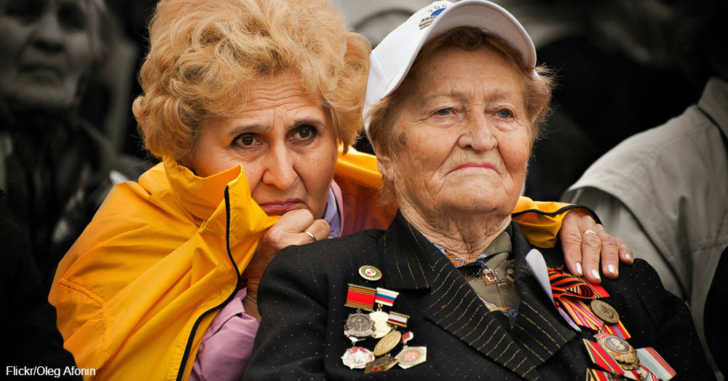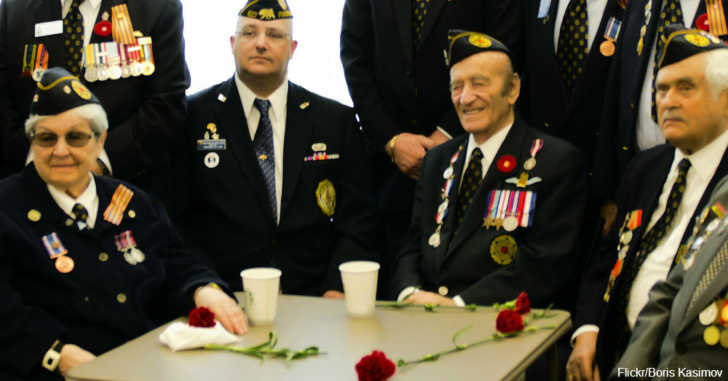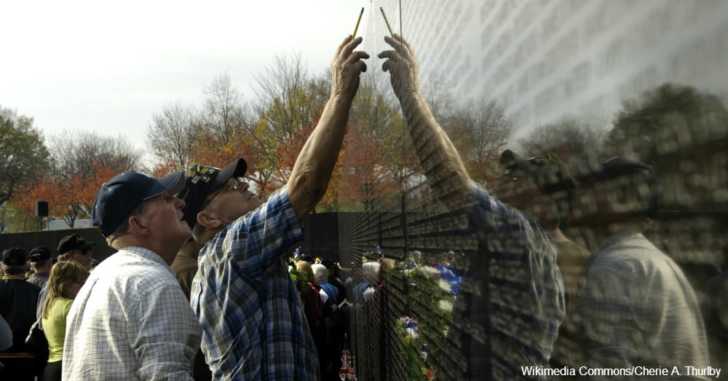How Can Veterans Understand Their Pain With A Pen?
It looks like the pen is actually mightier than the sword.
Veterans these days have many different therapies to complement standard psychological counseling for PTSD. One such therapy is writing. An organization known as the Veterans Writing Project is helping put veterans in touch with their experiences, feelings and memories as they try to work through their demons.

How Writing Helps PTSD in Warriors
Psychologists believe expressive writing offers benefits through what they call exposure therapy, according to the New York Times. Patients use writing as a way to express feelings, emotions and situations that otherwise remain unspeakable. This type of therapy seems to work best to help people examine anxiety and abuse until patients eschew emotional and physical responses to trauma. Retelling a traumatic event over and over, as a written exercise, helps victims of PTSD release the hold of PTSD until it no longer controls them as the effects of trauma diminish with time.
Iraq veteran Travis L. Martin says his experience with expressive writing was a way to make sense of his feelings of anger, depression, fear, and anxiety. After Martin finished one tour of duty, he didn’t have time to process his PTSD before he shipped out for another assignment. When he put his feelings to paper, his brain started to fill in the missing gaps that he needed to deal with his PTSD. Eventually Martin saw his writing as a way to hammer out his emotions and feelings rather than keeping them bottled up inside.

What The Veterans Writing Project Does
Veteran Ron Capps founded the Veterans Writing Project to give warriors the skills they need to express themselves in positive, constructive ways. His forums, classes and seminars give veterans a way to share their experiences with others who understand what they went through.
His writing motto is, “control the memory so it doesn’t control you.”
Civilian writing classes simply don’t cut it because most of the people in those classes simply can’t relate to what warriors encountered in the battlefield.
That’s why Capps sees a need for writing classes at military installations: in veterans’ hospitals, online, and on college campuses near bases. The Veterans Writing Project seminars are taught by veterans with master’s degrees in fine arts or writing. Instructors customize curricula for fiction, non-fiction, poetry, or play-writing over the course of two-day intensive seminars or 14-week traditional classes over one semester.
The program has three basic goals: to produce a new genre of literature, to create a social aspect as soldiers share their stories with each other, and to provide therapy for warriors. The social aspect includes helping the current generation of veterans to understand their stories and grow from their experiences. Sharing written stories with the Veterans Writing Project creates an environment of mutual trust and respect among warriors while engaging in complementary therapy.

Artistic Expression as Therapy
Veterans need to have varied methods of complementary therapy since no “one size fits all” strategy works. Some veterans prefer fly fishing, while others embrace interests in music or painting. The more types of therapies psychologists and military experts can develop, the better the long-term prognosis for wounded warriors with PTSD.
Researchers note that writing may boost the immune system and helps patients to heal from anxiety, stress, and depression. This activity can also keep PTSD patients from getting worse. In terms of military experiences, expressive writing helps turn shock and grief into acceptance, gratitude, and transformation in soldiers, says VietNow. The key for therapeutic writing relies on the meaning of traumatic events rather than just expressing them over and over again.Expressive writing remains just one vital link to the healing of veterans.
You can help by signing a petition to help veterans struggling with PTSD!
SKM: below-content placeholderWhizzco for CRH

